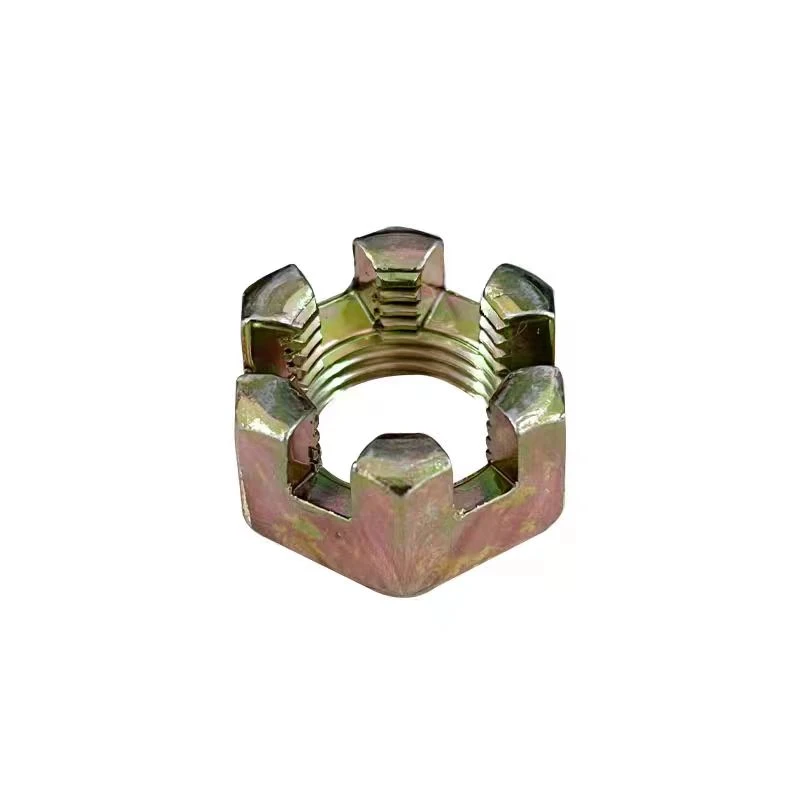

Fundamentals and Uses of Stud Bolts in Engineering and Construction Applications
Okt . 21, 2024 06:28 Back to list
Fundamentals and Uses of Stud Bolts in Engineering and Construction Applications
Understanding the Basics and Applications of Stud Bolts (UNC)
Stud bolts are a critical component in various industrial applications, providing a reliable solution for fastening and securing parts in mechanical assemblies. Understanding the basics of stud bolts, particularly those designed with Unified National Coarse (UNC) threads, is essential for anyone involved in manufacturing, engineering, and maintenance sectors.
What are Stud Bolts?
Stud bolts are elongated fasteners with threads running along their entire length, allowing them to be inserted into pre-tapped holes or used with nut systems. These components are typically made from high-strength materials, such as carbon steel, stainless steel, or special alloys, making them suitable for high-stress environments. The design of stud bolts simplifies installation and maintenance, as they can secure two or more components together without the need for a traditional bolt head.
Unified National Coarse (UNC) Threads
The Unified National Coarse (UNC) thread standard is widely used, especially in North America. It defines the pitch and profile of the threads that are used on studs, bolts, nuts, and other fasteners. The thread pitch refers to the distance between each thread, while UNC typically features a larger pitch compared to Fine threads, making it advantageous for applications requiring quick assembly and disassembly.
UNC threads generally come in various diameters, and their specification includes size designation, such as 1/4-20 UNC, which indicates a 1/4-inch diameter with 20 threads per inch. This system simplifies selection, as engineers and technicians can easily refer to standards when sourcing or specifying fasteners.
Applications of Stud Bolts
Stud bolts find extensive use across various industries due to their versatility and effectiveness in holding components securely. Here are some key applications
1. Industrial Machinery In heavy machinery and equipment, stud bolts are used to secure frames, housings, and components subjected to significant vibrations and stresses. Their robust design helps prevent loosening over time.
2. Construction In construction, especially for steel structures, stud bolts facilitate the connection of steel beams and columns. They ensure structural integrity and are crucial in maintaining the safety of buildings and bridges.
stud bolt unc understanding the basics and applications

3. Oil and Gas The oil and gas industry heavily relies on stud bolts for assembling pipes, valves, and flanges in highly pressurized systems. The ability to withstand extreme conditions makes them ideal for this environment.
4. Automotive In automotive applications, stud bolts are utilized in engine assemblies and axle connections. Their strength ensures long-lasting performance, which is essential for vehicle reliability.
5. Aerospace In aerospace engineering, where weight and safety are paramount, stud bolts are often used in airframes and engine components due to their lightweight characteristics and high strength.
Benefits of Using Stud Bolts
Stud bolts offer several benefits, which contribute to their popularity in various applications
- Ease of Installation The design allows for straightforward installation, requiring simply a nut to secure components without needing a bolt head, which can be advantageous in confined spaces.
- Strength and Durability Made from robust materials with heat treatments, stud bolts provide high tensile strength and durability, making them ideal for demanding environments.
- Versatility Available in different sizes and materials, stud bolts can meet a wide range of application needs. Their compatibility with various nuts and fasteners enhances this versatility.
- Maintainability Stud bolts are easier to inspect and replace, which is particularly important in applications where maintenance downtime needs to be minimized.
Conclusion
Stud bolts, especially those with Unified National Coarse threads, play a vital role in modern engineering and industrial applications. Their unique design and the benefits they offer make them a preferred choice for securing components in various high-stress environments. Understanding the basics of stud bolts, their applications, and their advantages empowers engineers and technicians to make informed decisions, ensuring reliability and safety in their projects. As industries continue to evolve, the importance of strong, durable fastening solutions like stud bolts will remain paramount.
Latest news
-
Hot Dip Galvanized Bolts-About LongZe|High Strength, Corrosion Resistance
NewsJul.30,2025
-
High-Strength Hot Dip Galvanized Bolts - Hebei Longze | Corrosion Resistance, Customization
NewsJul.30,2025
-
Hot Dip Galvanized Bolts-Hebei Longze|Corrosion Resistance&High Strength
NewsJul.30,2025
-
High-Strength Hot-Dip Galvanized Bolts-Hebei Longze|Corrosion Resistance&High Strength
NewsJul.30,2025
-
Hot Dip Galvanized Bolts-Hebei Longze|Corrosion Resistance&High Strength
NewsJul.30,2025
-
Hot Dip Galvanized Bolts - Hebei Longze | Corrosion Resistance, High Strength
NewsJul.30,2025

